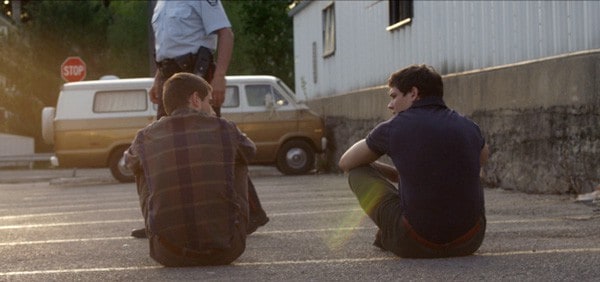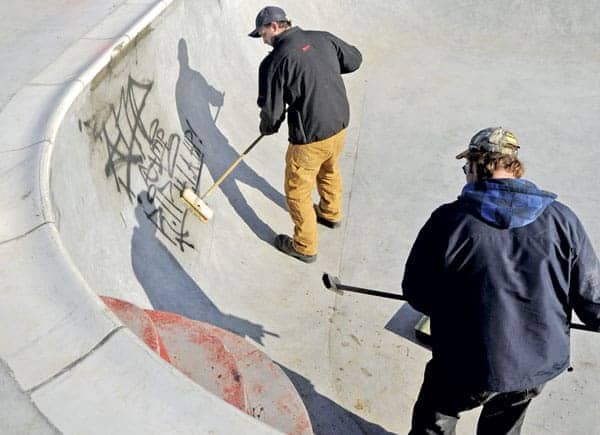The Elmira case, the 1974 vandalism spree turned restorative justice landmark, helped spur a worldwide movement towards alternative approaches to criminal justice.
![Tyler Peacock and Jaden Goetz play the two young offenders in The Elmira Case, a short documentary film about the 1974 vandalism spree that led to the first application of restorative justice in Canada. The movie, produced by the Waterloo Region-based Rosco Film company, premiered Mar. 21 at the Peace on Earth Film in Chicago. [Submitted]](https://www.observerxtra.com/content/images/wp-content/uploads/2015/03/post_film.jpg)
Now, the story has been detailed in a short film by the Waterloo Region based Rosco Films.
“The story kind of came to us initially,” writer Ken Ogasawara said. “Community Justice Initiatives came to us and said that it was the fortieth anniversary of the Elmira case and they wanted to do a three- or four-minute promotional video about the story. But when we heard the story, we thought that the story was bigger and worth more than just a three-minute video.”
In May of 1974, a pair of drunken teens went on a rampage through Elmira, slashing tires and smashing the windows of nearly two dozen cars and homes in the early morning hours while the town slept.
The senseless vandalism rattled homeowners, unsure of who would do such a thing and what their motivations could be.
But they would get answers.
The two young men who caused the damage were busted. But thanks to a creative idea by their probation officer, Mark Yantzi, they weren’t headed for jail.
Instead, Yantzi and a judge agreed to make the offenders face their victims, to be held personally accountable and to pay back the costs of the damages they caused.
“In our interviews, we found that there were mixed reactions initially, to the idea,” Ogasawara said. “Some people were obviously very angry and others felt that a sorry wasn’t enough.”
Still, others saw the benefits: Perhaps this could be a more effective way to prevent recidivism and promote rehabilitation?
While it all sounds like common sense – accountability along with some closure for the victims – the decision to apply restorative justice principles was a groundbreaking decision which gave legitimacy to advocates and sparked a movement that now includes dozens of organizations in some 50 countries around the world.
The film includes interviews with one of the offenders, Russell Kelly, who has become a well known advocate for restorative justice. Yantzi is also profiled, along with a couple who had their property damaged during the spree.
They detail how the decision to go in a different direction had a profound impact on both themselves and the international justice community.
For the team at Rosco films, all local guys from Wilmot and Woolwich townships, the project was rewarding because it highlights an important local story that isn’t well known by many in the region.
The film premiered at the Peace on Earth Film Festival in Chicago on March 21, and a Canadian premiere will be scheduled shortly.
To check out the film’s trailer, go to the Rosco Films Facebook page: www.facebook.com/roscofilms.









